

The Peter C. Schaehrer Memorial Lecture
Celebrating Over 15 Years of Student and Alumni Engagement With Leading Research in Peace and Conflict Studies


About PCON
about tHe peace and conflict StudieS program at colgate univerSity
Friends of Pete Schaehrer ’65 like to say that he would have been a peace and conflict studies major had it existed in the early 1960s. Indeed, he only missed the opportunity by a few years. In the late 1960s, over two dozen students and faculty at Colgate University came together to reflect on the intense turmoil gripping the nation and the world. Out of this came a course, Problems of War and Peace, which was first taught in the fall of 1970. With support from George R. Cooley 1917, the first chair in peace studies in the United States was created, the Dag Hammarskjöld Chair, named in honor of the second UN Secretary-General. Thus peace studies at Colgate was born, making it the oldest such program at a secular institution of higher education in North America. The program was renamed Peace and Conflict Studies (PCON) two decades ago, largely in recognition of the changing nature of the field of study, which has transformed from an activist discipline in the 1960s and 1970s into a more rigorous interdisciplinary endeavor since the 1990s. The flagship journal of the field, the Journal of Peace Research, is one of the most respected social science publications in the world.
Today, the PCON program is one of the most popular interdisciplinary programs at Colgate University and among the top 15 most popular majors across the University.
PCON also boasts the largest cohort of permanent faculty housed in an interdisciplinary program at Colgate. It draws upon scholars with training and research in history, political ethnography, human geography, science and technology studies, architecture, area studies, geology, and international relations.






Karen Harpp
Peter C. Schaehrer ’65
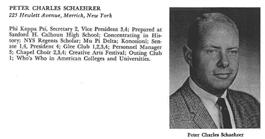


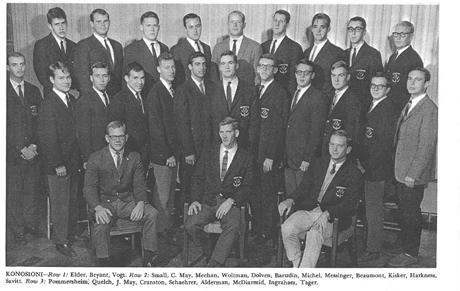
Dr. Peter C. Schaehrer, Colgate Class of 1965, was an authentic humanitarian — his was a firm and gentle voice for peace, justice and compassion. Dr. Schaehrer died prematurely at the age of 45 and, in his memory, a fund has been established at Colgate University to support the ongoing work of the Peace & Conflict Studies Program — whose ideals he wholeheartedly endorsed.
At Colgate, Dr. Schaehrer was the President of the Student Senate and a member of Konosioni, Mu Pi Delta, Phi Kappa Psi, the Glee Club and the Chapel Choir. He received his master’s degree in Student Personnel & Counseling from Colgate in 1969 and his doctorate in higher education from Columbia University in 1974. Other than brief stints with the University of Rhode Island and the Mayor’s Office of the City of New York, Dr. Schaehrer spent his entire post-Colgate career as a counselor and administrator in the Office of Student Affairs at Lehman College of the City University of New York in the Bronx.
In his twenty years of service to Lehman College, Dr. Schaehrer undertook a wide variety of professional assignments in addition to the role that he cherished most, that of adviser and counselor to students. In the early 1970s, he organized the College’s outreach to returning Vietnam veterans and developed effective programs to reintegrate them into campus life. He was the College’s chief disciplinary officer for many years and, as such, helped to dispose, amicably and justly, of many thorny, troublesome, and difficult student conduct matters. He supervised the Campus Student Information Division, the College’s student security arm, and also served as the senior administrator and principal architect of Lehman’s substance abuse prevention programs. He designed and administered educational, outreach, and training programs for student peer counseling, drug abuse helplines, and student health issues.

Dr. Schaehrer was active in a number of community institutions on the Upper West Side of Manhattan where he maintained his home for many years. He was a principal organizer of the New York City AIDS-WALK, and was a vestryman and faithful communicant of St. Michael’s Episcopal Church. He helped design the Church’s Building Restoration Campaign, and was a major figure in the renowned St. Michael’s Choir and Camerata where his splendid bass voice was a welcome addition to the Church’s sacred music program.
Dr. Schaehrer was much admired by his Colgate classmates, his professional colleagues and by the students with whom he worked for his calm, warm, and always gentle demeanor, and for his genuine care and concern for students’ personal growth and maturity. He had, for almost two decades, a following of students unsurpassed by anyone in the Office of Student Affairs at Lehman College. During his five years at Colgate, his two
years at the University of Rhode Island, and his twenty years at Lehman, Dr. Schaehrer developed great rapport, gave unselfishly of his time, befriended and counseled non-judgmentally a broad range of students of all ages, genders, and ethnicities. His relationships with all people —including his colleagues at every level—displayed a genuine consideration and civility which made for a most positive and productive atmosphere in all the contexts in which he served. Dr. Schaehrer’s genuine goodwill, concern for justice and harmony, and unselfish interest in others established a standard which few Colgate graduates will ever attain.
* Text by Rick Stege from October 2009

A Historical Deep Dive Into Democracy’s Uncomfortable Relationship With Torture
The inaugural Schaehrer Memorial Lecture and seminar was given by Darius Rejali, now professor emeritus at Reed College in Portland, Oregon. Rejali, who earned his PhD in political science from McGill University, was selected for the first Schaehrer Lecture and Seminar because of his monumental and widely acclaimed study Torture and Democracy, published by Princeton University Press in 2007. Torture and Democracy won both the 2007 best book in human rights from the American Political Science Association and the 2009 Lemkin Award from the Institute for the Study of Genocide, named in honor of Raphael Lemkin, the legal theorist who coined the term genocide. Research for Torture and Democracy was supported by the Carnegie Corporation of New York, which named him a Carnegie Scholar in 2003, the first Iranian-American to receive the award. Since retiring from full-time teaching, Rejali has continued working on a new monograph, Bystanders to Violence, which is under contract with Harvard University Press.

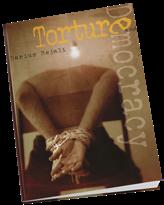
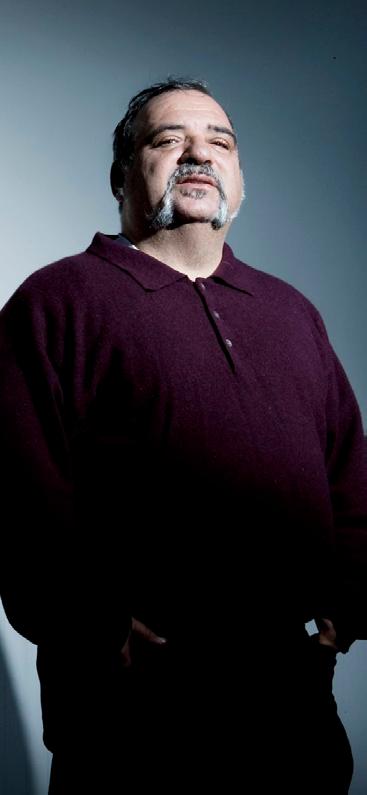

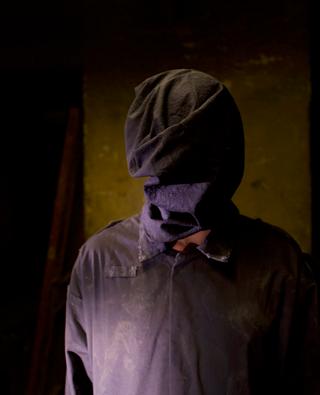

A Political Scientist Explains ‘Senseless’ Violence in the Rwandan Genocide
Scott Straus was invited to give the second Schaehrer lecture and Seminar based on his study The Order of Genocide: Race, Power, and War in Rwanda, published by Cornell University Press in 2006. A former journalist and then a professor of political science at the University of Wisconsin-Madison, Straus’ account of the Rwandan genocide is still widely regarded as the most important and systematic effort to understand those horrific events in 1994 using a social-scientific lens. As noted by the scholarly journal African Studies Review, “Scott Straus ranks among the finest of the scholars writing in genocide studies. The Order of Genocide is fair-minded, important, and rigorous.” Straus, who has since moved to the University of California-Berkeley, his PhD alma mater, has published several books since then, including the award-winning Making and Unmaking Nations: War, Leadership, and Genocide in Modern Africa (published by Cornell University Press in 2015) and Fundamentals of Genocide and Mass Atrocity Prevention (published by the U.S. Holocaust Memorial Museum in 2016).
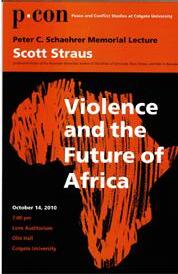
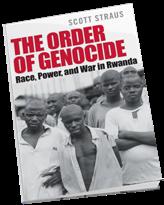
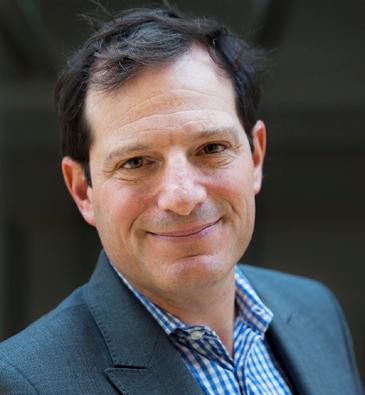




The Shadows of Tomorrow’s Wars
Elucidated by an Anthropologist
Anthropologist Carolyn Nordstrom of Notre Dame was invited to give the third Schaehrer lecture and seminar based not only on a lifetime of fieldwork in war zones, but also her two recent publications, Shadows of War: Violence, Power, and International Profiteering in the Twentyfirst Century (2004) and Global Outlaws: Crime, Money, and Power in the Contemporary World (2007), both published by the University of California Press. Nordstrom’s lecture and seminar, which focused on recent fieldwork with computer hackers and high-tech war industries, brought Colgate students, faculty, and alumni into an unseen world of human trafficking, arms smuggling, and other illicit economies. This work later appeared in her 2014 book, Cyber Shadows: Power, Crime, and Hacking Everyone, co-authored with Lisa Carlson.
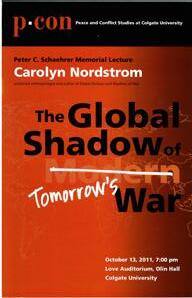





Raising Philosophical Questions About the Violence and Ethics of Sanctions
Joy Gordon — now the Ignacio Ellacuría, S.J. Professor of Social Ethics at Loyola University Chicago — delivered the fourth Schaehrer lecture and seminar on the ethical dimensions of sanctions as a tool of warfare and diplomacy. Drawing on her Invisible War: The United States and the Iraq Sanctions, published by Harvard University Press in 2010, Gordon examined the human toll and questionable rationalizations of the most extensive sanctions regime ever imposed on a country, one where extremely high rates of excess mortality could be plausibly traced back to U.S. policies leading up to the 2003 Iraq War. At the time of the 2012 lecture, Gordon was a professor of philosophy at Fairfield University. Today Gordon continues to remain active among various communities of legal scholars, notably in Latin America, challenging sanctions as a tool of statecraft.







Using Data to Explain When Strategies of Nonviolent Resistance Succeed
The political ruptures across the Arab World in 2011 saw two longstanding regimes toppled by popular nonviolent uprisings. Arguing that this was not a one-off event, Erica Chenoweth and her co-author, Maria Stephan, convincingly demonstrated that nonviolent resistance is a much more effective method to seek systemic social change than armed revolt. In their Why Civil Resistance Works: The Strategic Logic of Nonviolent Conflict, published by Columbia University Press in 2011, they examined data on hundreds of violent and nonviolent movements in order to reach this profound conclusion. Their book won both the 2012 Woodrow Wilson Foundation Award and the prestigious 2013 Grawemeyer Award for Ideas Improving World Order. At the time of the lecture, Chenoweth, an international relations scholar, was a professor at the University of Denver’s Korbel School of International Studies. She has since gone on to a professorship at Harvard University, where she now serves as an Academic Dean of the Faculty.



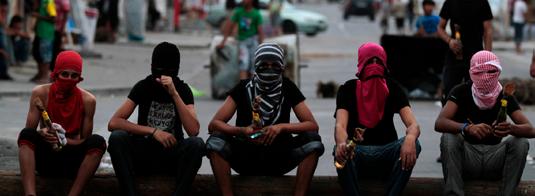

Chenoweth
Peter C. Schaehrer Memorial Lecture

Tracking Down the International Origins of the Vietnam War
Having scoured archives around the world, historian Fredrik Logevall, then of Cornell University, reexamined the origins of the Vietnam War in the sixth annual Schaehrer lecture and seminar. Based on his book Embers of War: The Fall of an Empire and the Making of America’s Vietnam published by Random House in 2012, Logevall’s monograph went on to win the Pulitzer Prize for History, the Society of American Historians’ Francis Parkman Prize, and the Council on Foreign Relations’ Arthur Ross Book Award, which recognizes works “that make an outstanding contribution to the understanding of foreign policy or international relations.” Since his lecture in 2014, Logevall has taken up a post as the Laurence D. Belfer Professor of International Affairs at Harvard Kennedy School.
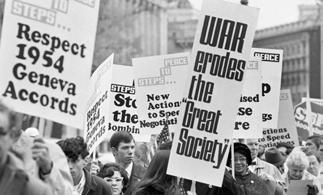




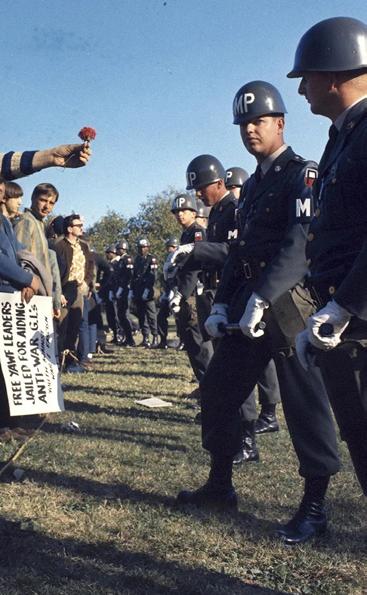



Authoritarian Regimes Abuse ‘Human Security’ to Stay in Power
Is human security — a new concept of bottom-up security — an idea that will afford people around the world more safety and prosperity, or the opposite? In his Schaehrer lecture and seminar, Paul Amar drew upon his fieldwork in Egypt and Brazil to explain how his book The Security Archipelago: Human-Security States, Sexuality Politics, and the End of Neoliberalism, published by Duke University Press in 2013, raises uncomfortable questions about the misuse of “human security” by regimes seeking more control over people’s daily lives in the name of protecting them. Amar, a political scientist at the University of California, Santa Barbara, is the director of the Orfalea Center for Global and International Studies. Amar continues to remain a highly productive researcher and scholar, recently publishing The Tropical Silk Road: The Future of China in South America, published by Stanford University Press in 2022.



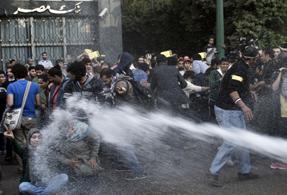


2016

Using a Social Science Lens to Understand the World of Peacekeepers
Who are the people that make peace in the world on a daily basis and why do their efforts often fail? Political ethnographer Séverine Autesserre explores the lived experience of those various actors who intervene in conflict and post-conflict situations in the name of peacebuilding. Autesserre, the Ann Whitney Olin Professor of Political Science at Barnard College, is seeking to understand why such interventions often fall short of their goals, and so her thesis pivots on the top-down nature of thinking about peace and how it is operationalized on the ground by various humanitarian organizations. Since her 2016 lecture, Autesserre continues to push for practical solutions to these pressing problems, notably in her recent The Frontlines of Peace: An Insider’s Guide to Changing the World, published by Oxford University Press in 2022.






2017

How Technologies of War Affect How We See the World
Antoine Bousquet’s contribution to the Schaehrer lecture and seminar series was to explore the “disappearance” of war in its traditional forms — large and centralized battlefields — and its replacement by new kinds of warfare that are more difficult to represent in writing and images. Then located at Birkbeck College at the University of London, Bousquet is now a professor at the Swedish Defense academy. Originally invited to discuss his book The Scientific Way of Warfare: Order and Chaos on the Battlefields of Modernity, published by Oxford University Press in a new edition in 2022, Bousquet also presented some of his newer research that would appear in his book The Eye of War: Military Perception from the Telescope to the Drone, from University of Minnesota Press in 2018. In his provocative lecture and seminar, Bousquet raised ethical questions about the ways that military technologies visualize their targets, often by dehumanizing the people in the crosshairs.
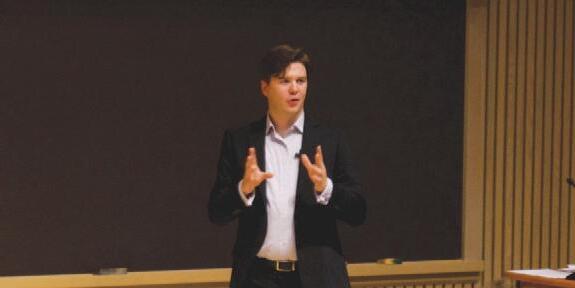

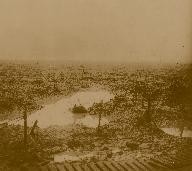



Antoine Bousquet

2018 Pulitzer-Prize Winning Journalist on America’s Entanglement in Afghanistan
New Yorker staff writer and former dean of Columbia University’s Graduate School of Journalism, Steve Coll delivered the 10th annual Schaehrer lecture and seminar on the topic of America’s prolonged military engagement in Afghanistan. Having won a Pulitzer Prize in 2005 for Ghost Wars: The Secret History of the CIA, Afghanistan, and bin Laden, from the Soviet Invasion to September 10, 2001 (Penguin Press, 2004), Coll was well placed to explain how the war in Afghanistan had become the longest in U.S. history. Indeed, Penguin Press had just published his new book, Directorate S: The C.I.A. and America’s Secret Wars in Afghanistan and Pakistan, a sequel to Ghost Wars. Coll’s most recent book, The Achilles Trap: Saddam Hussein, the C.I.A., and the Origins of America’s Invasion of Iraq, is widely anticipated to net him a third Pulitzer.





How the Idea of Genocide Has Shaped Global Politics
Genocide is not just the “crime of crimes” in international law, it is also a highly debated and contested concept that has been used and abused for numerous political ends since its invention after World War II. Benjamin Meiches, an associate professor in politics, philosophy, and public affairs at the University of Washington, Tacoma, raised many such uncomfortable questions in his contribution to the Schaehrer lecture and seminar series in 2019. Based on his thenrecently published book, The Politics of Annihilation: A Genealogy of Genocide from University of Minnesota Press, Meiches suggested that the politics of genocide is not just what causes genocides and how we respond to them (or not), but this politics also takes the form of whether we call mass violence genocide or not. More recently, Meiches has published Nonhuman Humanitarians: Animal Interventions in Global Politics with the same press.
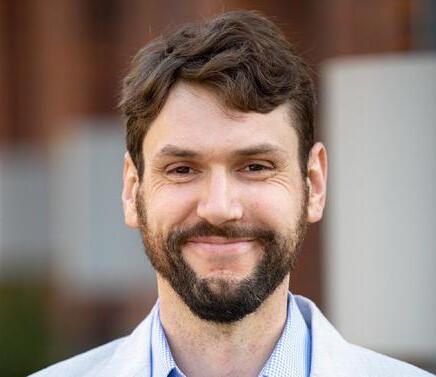
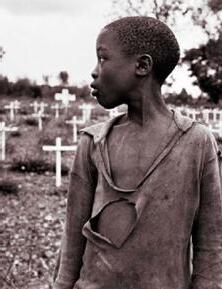
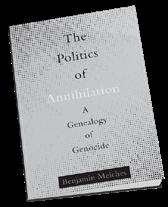
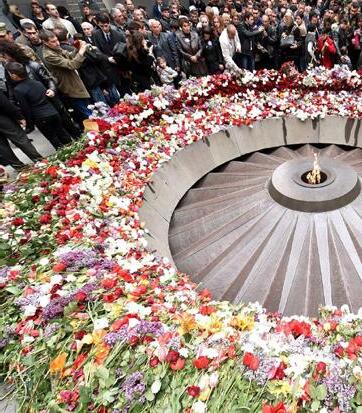


Learning the Lessons of the Nuclear Age in the Ruins of Chernobyl
Massachusetts Institute of Technology historian Kate Brown joined Colgate’s students, faculty, and alumni in 2021 for an online edition of the Schaehrer lecture and seminar based on her then-recent book
Manual for Survival: A Chernobyl Guide to the Future, published by Penguin in 2019. Manual for Survival — winner of multiple awards and a finalist for the National Book Critics Circle Annual Prize for Nonfiction
— is no ordinary work of historical writing. Brown’s historical craft is based on going to the places and talking to the survivors at the center of her studies. Rather than viewing Chernobyl as a singular and disruptive event in the history of nuclear energy and weapons, Brown convinces us to see it as an acceleration of forces already set in motion since the dawn of the atomic age in World War II. Whether we still have control over those forces, Brown challenges us, is a pressing question in a time when a new generation of nuclear power plants and weapons are being constructed.








2022

Race Relations — Not International Relations — Have Defined Modern Global Politics
The provocative thesis of Alexander Barder’s Global Race War: International Politics and Racial Hierarchy, published by Oxford University Press in 2021, is that race was the prevailing issue guiding both statecraft and the creation of the discipline of international relations in the late 1800s and early 1900s. A professor of political science at Florida International University, Barder’s lecture and seminar focused on this hidden history, one that scholars in his field have been complicit in burying under layers of abstract theory and self-serving histories. A leading figure in this new revisionist school of international relations scholarship, Barder’s work brought an emerging paradigm shift to all the students, faculty, and alumni in attendance.





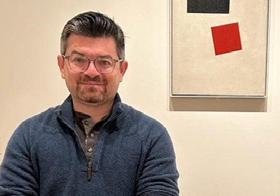

2023

The Everyday Infrastructures of Global Trade That Make War Possible
What does a port in the Persian Gulf today have to do with the British East India Company three centuries ago or wars across the Middle East more recently? Everything, according to Laleh Khalili, the recently inaugurated Al Qasimi Professor of Gulf Studies at the University of Exeter’s Institute of Arab and Islamic Studies. In her widely acclaimed Sinews of War and Trade: Shipping and Capitalism in the Arabian Peninsula, published by Verso Press in 2020, Laleh Khalili’s sweeping Schaehrer lecture traced the historical origins of today’s crises in the Middle East through an examination of trade infrastructures in the region.
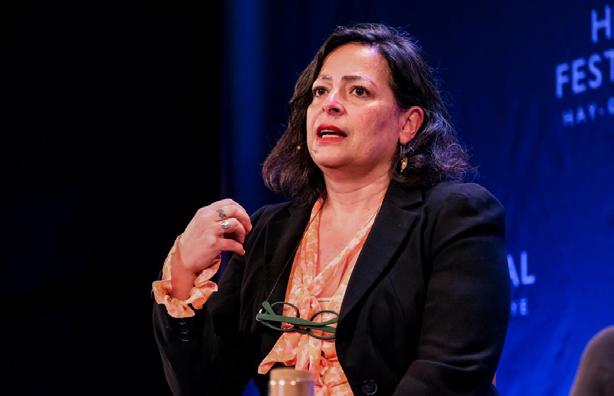





2024

Is Social Media a Form of Psychological Warfare That We Wage on Ourselves?
The 15th Schaehrer lecture and seminar was given by MacArthur Genius Award recipient Trevor Paglen, a visual artist and geographer. Central to Paglen’s work is an effort to use various kinds of media to make invisible worlds visible, especially the workings of those whose power resides in their “invisibility.” Paglen’s art, which has been shown in galleries around the world, was the subject of a midcareer retrospective curated by the Smithsonian Museum’s director of photography. For his Schaehrer lecture and seminar, Paglen traced the strange but intertwined histories of so-called artificial intelligence, social media, and U.S. government efforts to manipulate public knowledge of U.F.O.s through techniques of psychological warfare.




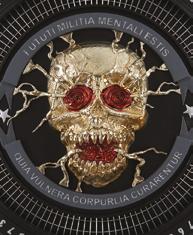





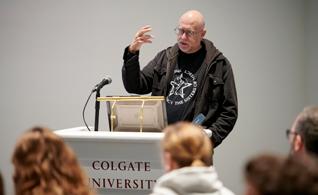











In
Memoriam Rick Stege ’65
In 2007 a group of Colgate Phi Psi friends from the mid 1960s were reminiscing about Pete Schaehrer who died on July 2, 1989, but he still seemed very much alive in their hearts. Given Pete’s remarkable accomplishments, his belief in building bridges, and solving human problems, it was decided to create a commemorative lecture series at Colgate in Pete’s name.
Rick Stege ’65 initiated and took on an active role in a sweeping fundraising effort. Many fraternity brothers from different years worked together reaching out to other Colgate alumni. (This was a time before “Go Fund Me.”) With exceptional help from a key player in the planned giving department at Colgate, the funds raised were funneled into “The Peter C. Schaehrer Memorial” PCON Initiative to support the ideals and programs in Peace and Conflict Studies at Colgate University.
This seemed a perfect fit to honor and continue Pete’s spirit of humanitarian actions. Colgate students, faculty, and others would have an opportunity to learn from distinguished scholars on the topics that motivated him the most.
A meeting on February 14, 2009, a core group of Schaehrer Fund supporters met Professor Dan Monk for the first time. Their goal was to discuss the mission of the lecture series and also a student scholarship in Pete’s name.
The first lecture was presented October 2009 and the series is ongoing with no sign of losing steam. Sadly, Rick Stege passed away in February 2019, but he would be pleased with the efforts of the supportive Colgate colleagues, friends, and students who work to continue this collaboration at the University.
Elaine Murphy, 2024



On February 7, 2019, Rick Stege passed away in Cleveland, Ohio, after a year-long battle with a series of medical issues. For two years, Rick was my roommate at Phi Kappa Psi. In our senior year, he was president of the fraternity. He graduated from the University of Wisconsin Law School in 1968 and for the next ten years, was a lawyer for Cleveland, Ohio, Legal Services. During that time, he developed, framed, briefed, and successfully argued the case of Moore v. City of Cleveland (1977) before the United States Supreme Court. This was not his only Supreme Court case, and he was very proud of his 100% record at SCOTUS. In 1979, Rick went into private practice beginning a 40-year career as a trial attorney representing plaintiffs in his continued commitment to social justice and the concept of equal justice before the law. Fifteen years ago, Rick became the creator and heart of the Peter C Schaehrer ’65 Initiative in Peace and Conflict Studies at Colgate. Beginning in 2009, with Rick’s commitment and leadership, the Schaehrer Initiative has brought outstanding speakers to campus each October for a two-day program of lectures and seminars. The lectures are online at the Colgate website. He is survived by his wife, Elaine, a daughter by his first marriage who lives in Paris, and three grandchildren. Rick was an outstanding leader as an undergraduate, as a member of the legal community in Cleveland, Ohio, and of Colgate. He was a friend and will be missed.
—
—
Written by Dan Schuckers, 2019

Layout and Design by Ryan J Stewart (rsmd.myportfolio.com)
2024 Schaehrer Lecture Photographs by Andrew Daddio (amdaddio.com)
